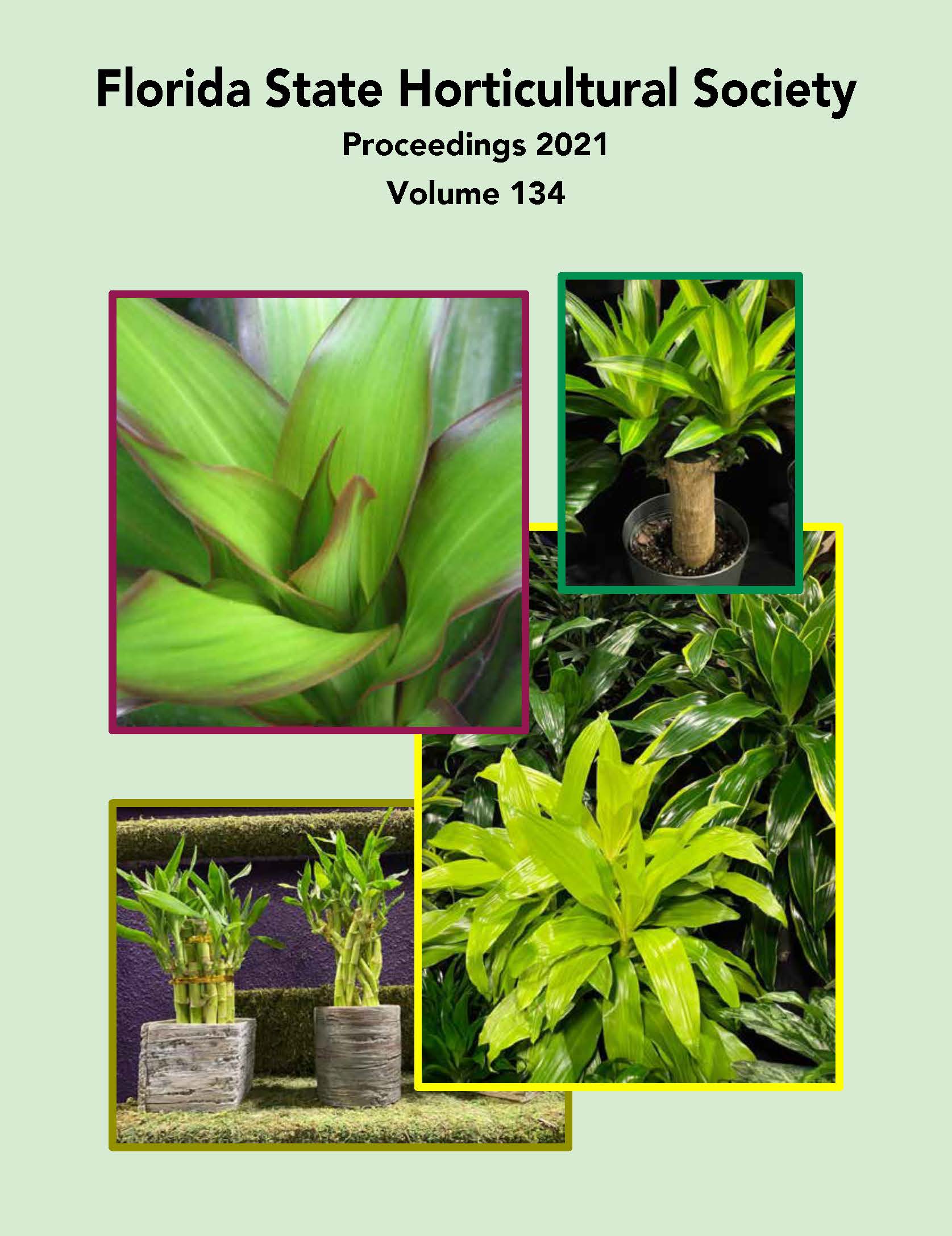Biological Interactions Between Root-knot Nematode (Meloidogyne incognita) and Pepper (Capsicum annuum)
Abstract
Root-knot nematodes (RKNs; Meloidogyne spp.) are soilborne plant parasites that severely decrease productivity of susceptible pepper (Capsicum annuum) varieties. Genetic resistance to RKNs serves as a nonchemical alternative to nematode management strategies. Although previous studies of pepper resistance genes to RKNs demonstrate a hypersensitive reaction-based mechanism, an advanced inbred line of pepper (‘UFRJ107(6)A3’, named ‘Ruby’) completely inhibits penetration to M. incognita. To gain insight into the mechanism of resistance in ‘Ruby’, responses of M. incognita infective juveniles to root tissues and root extracts from pepper test lines were evaluated in vitro using Pluronic F-127 gel. First, infective second-stage juveniles (J2) were able to penetrate root tips of C. annuum cv. Jimmy Nardello Italian (JNI, a susceptible cultivar), and ‘Ruby’ when 3-week-old seedlings were used. The ability of J2 to penetrate root tips of ‘Ruby’ suggests that resistance in ‘Ruby’ could be associated with plant growth developmental
stage. Second, hydrophilic compounds from root extracts of both ‘JNI’ and ‘Ruby’ showed a negative effect on chemoreception by J2s. The results of the current study can be used to better understand the multiple components of RKN resistance unique to ‘Ruby’.

